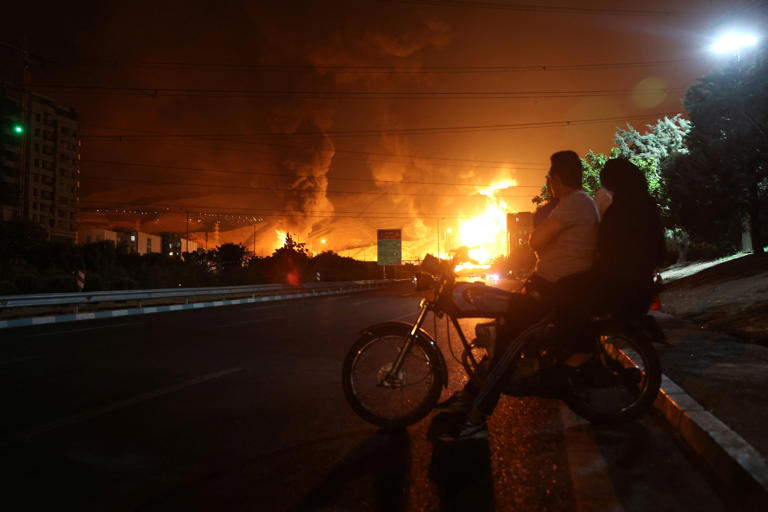
Iran-Israel Conflict Triggers Security Concerns in Pakistan

 :
| Updated On: 18-Jun-2025 @ 11:09 am
:
| Updated On: 18-Jun-2025 @ 11:09 amSHARE
In January 2024, Pakistan and Iran engaged in a brief military exchange, launching missile strikes into each other’s territories. Despite this flare-up, by mid-2025, Pakistan strongly condemned Israel’s attacks on Iran’s nuclear facilities and the assassination of Iranian officials, describing the acts as violations of Iran’s sovereignty and “blatant provocations.” Islamabad called on the international community and the United Nations to intervene and stop the aggression.
As the Iran-Israel conflict entered its sixth day, with over 220 deaths in Iran and more than 20 in Israel due to retaliatory missile strikes, Islamabad expressed concern. Analysts say the escalating conflict has reignited Pakistani fears, especially regarding Israeli military influence near its western border. Pakistan, which shares a 905km border with Iran through Balochistan, closed five border crossings on June 15 and facilitated the return of over 500 Pakistani nationals from Iran, mainly students and pilgrims.
The border closures, particularly at Taftan in Balochistan, are rooted in Pakistan’s security concerns. The region, rich in resources like gold and copper, is volatile and has been the site of past armed uprisings. Experts say Islamabad fears the infiltration of Baloch separatist fighters — such as those from the Balochistan Liberation Army (BLA) and Balochistan Liberation Front (BLF) — who operate on both sides of the Iran-Pakistan border.
Pakistan and Iran have a history of blaming each other for harboring militant groups responsible for cross-border attacks. The January 2024 missile exchange stemmed from Iran targeting the Jaish al-Adl group in Pakistan’s Balochistan, which prompted a swift Pakistani counterstrike inside Iran. Relations were later mended, with Iran staying neutral during Pakistan’s brief tensions with India in May.
On the diplomatic front, Pakistan's Foreign Minister Ishaq Dar told Parliament that Iran is open to negotiations if Israel halts further aggression. Pakistan has shared this with other countries, hoping to facilitate peace talks. However, analysts like Umer Karim warn that while Pakistan wants de-escalation, it is wary of getting too deeply involved, especially as it tries to rebuild ties with the U.S., Israel’s ally.
Another major concern is the potential repetition of the Afghan refugee crisis. Since the 1979 Soviet invasion, Pakistan has hosted waves of Afghan refugees, with numbers peaking at 4 million. In 2023, Islamabad began repatriating these refugees, citing security threats from groups allegedly based in Afghanistan. Experts fear a similar situation could arise if Iran’s border becomes unstable and refugees start crossing over.
Compounding Islamabad’s unease is Israeli Prime Minister Netanyahu’s claim that Israeli forces have air superiority over Tehran. Pakistan, which does not recognize Israel, fears increased Israeli aerial dominance near its western border would alter regional security dynamics unfavorably.
Finally, Pakistan is also sensitive to sectarian implications. As a Sunni-majority country with a significant Shia population (15% of 250 million), overtly siding with Israel against Iran could inflame domestic tensions. Security analyst Ihsanullah Tipu Mehsud noted that while Pakistan previously aligned with the U.S. in conflicts, including in Afghanistan, it may act more cautiously this time to avoid internal backlash and maintain regional stability.
Contact Us
House. No. : 163, Second Floor Haridev Rd, near Puberun Path, Hatigaon,Guwahati, Assam 781038.
E-mail : assaminkcontact@gmail.com
Contact : +91 8811887662
Enquiry
×
Reporter Login
×